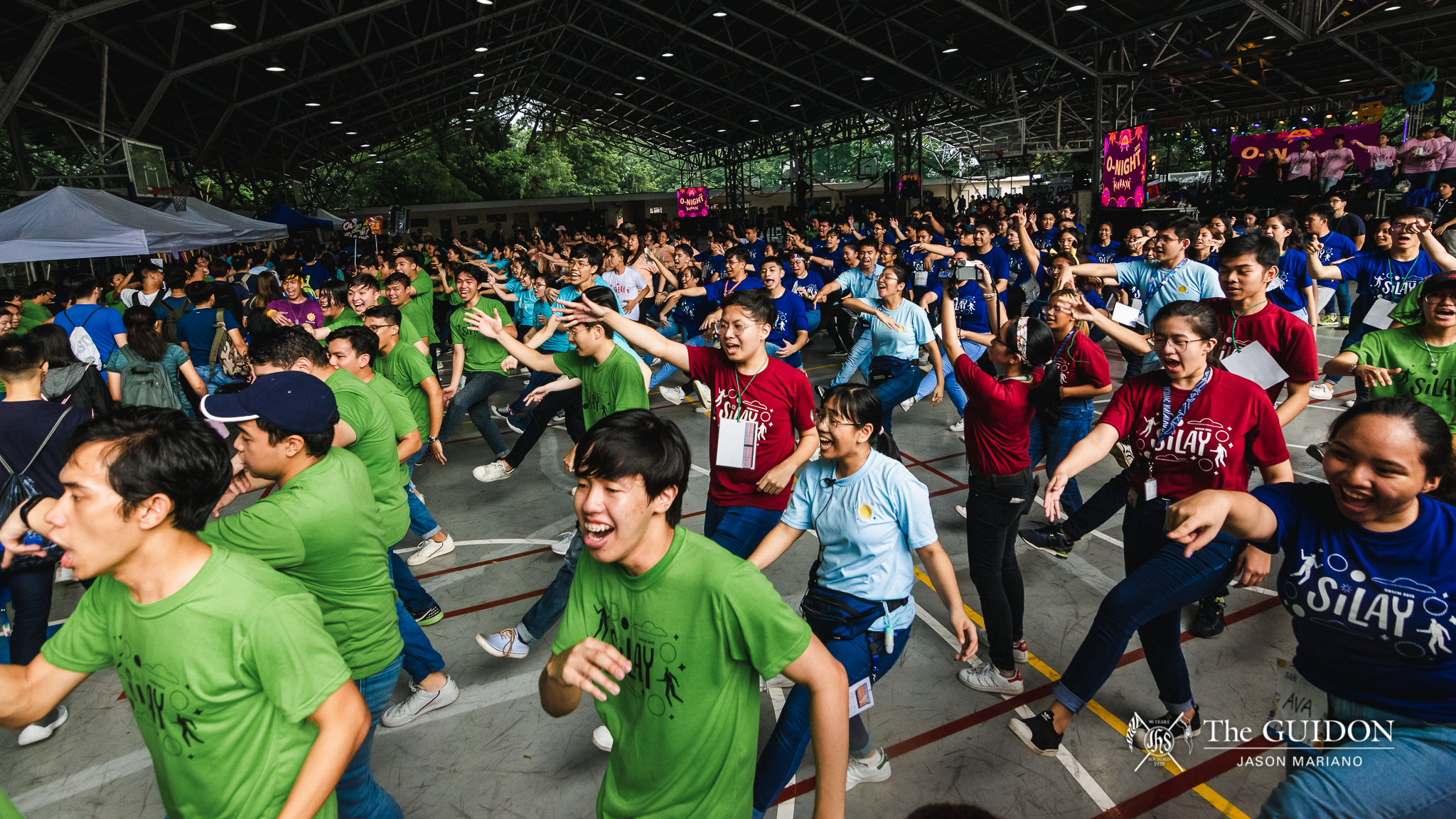Every August, thousands of freshmen make their way to the Loyola Schools Covered Courts to kick off their college journeys. Ateneo de Manila University’s freshman Orientation Seminar (OrSem) is a monumental event, mounted to ensure that freshies get the welcome that they deserve. Year in and year out, this gargantuan task falls under the OrSem Organizing Committee (OrCom) and its thousands of volunteers.
Given OrSem’s vibrant history, the OrCom innovates the event to reach freshmen with equally new perspectives. With innovation comes the challenge of keeping tradition: This delicate balance between the old and new makes the wait for OrSem and its festivities all the more exciting. Throughout the years, the OrCom has continually pushed the boundaries of what OrSem can be, while keeping its core intact.
Changes afoot
This year’s OrSem theme, Silay, refers to a glimpse—much like how OrSem gives incoming freshmen a peek into college life. “OrSem is there to showcase what lies ahead of [the freshies] in their journey in the Ateneo and that there is nothing to be afraid of,” explains Kayla Atienza (4 BS CTM), one of this year’s O-Chairs.
Last year’s glimpse into the Ateneo was all the more fleeting due to inclement weather. OrSem 2018: Tayâ was postponed twice and eventually condensed into a one-day affair. The rescheduling was a huge blow to everyone involved—from the organizers and volunteers who prepared tirelessly for the event, to the freshmen who did not get to experience OrSem as originally planned. For OrSem 2019: Silay, the entire OrCom is ready to bounce back.
“There [have been] circumstances where we had to adjust to factors out of our control, but that’s a challenge we cannot deny also in real life,” Meriza Mamaril (4 BS ME), the other half of this year’s O-Chair duo, shares. “We just have to be adaptable and strong-willed in facing them.”
Hence, after last year’s compressed OrSem, the OrCom started to question how long the event had to be. To get the pulse of the people, the OrCom processed evaluation forms from the freshmen and held exit interviews with volunteers from the previous year.
As a result, one of the biggest changes involves readjusting O-Night, the segment that serves as OrSem’s finale. “O-Night will now start and end earlier to accommodate the fact that OrSem is two days long and must be very tiring for the freshies and our volunteers,” says Atienza. In a step away from tradition, OrCom removed the annual fashion show to resolve this concern.
“[The fashion show] is not substantial anymore since it is not related to [the freshmen’s] Ateneo journey,” adds Entertainment Head Charlene Flores (4 AB EU). With this, O-Night is to be packaged as a more compact, yet meaningful closing activity focusing on O-Idol and batch bonding.
In the same vein, Logistics Head Elijah Garcia (5 BS CH-MSE) says that innovation considers the unique circumstances of every new batch. “Innovation is important because it addresses the possibility of OrSem being stagnant because it is a tradition,” he says. “[Through innovation], we create more opportunities for the people to demonstrate or to showcase their creativity.”
Though some parts of OrSem’s tours, shows, group dynamics, and talks are largely set in stone, to Garcia, volunteers can innovate without compromising these traditions. For instance, based on evaluations from previous OrSems, freshmen often found it difficult to see the stage from the back. This year, the Logistics Committee plans to update the Covered Courts’ floor plan by moving the stage to the center and spreading the chairs around it. To accommodate a larger batch of freshmen, Garcia points to the new layout as a solution to overcrowding—allowing freshies to kick back and enjoy the program in comfort.
The same spirit
This slew of changes was clearly made with the freshmen in mind. Despite these adjustments, the OrCom and OrSem volunteers strive to maintain the magic of OrSem and its rootedness in their love for the freshies. “It’s a combination of all the efforts of not just the OrCom and the Subcore,” Flores says, “but also the whole Ateneo because we involve the staff and everyone in the offices.”
This spirit of inclusivity keeps OrCom open to innovation. Change may come at the risk of losing tradition, but if reworking old systems can make OrSem feel more welcoming, then the risk would be worthwhile. “With OrSem, we want the freshies to feel like they belong in the Ateneo in every aspect we can,” Atienza adds. “[And] as much as possible, we try our best to innovate towards what they would want and enjoy, as each OrSem would be their own.”
Despite the need to improve and innovate, Mamaril asserts that the essence of OrSem stays the same. “It’s one of those things that all Ateneans share and it’s always so fun discussing with others how our [OrSem] experiences were,” she says. “But I guess, more than that, OrSem has a greater effect because it encapsulates what it means to be an Atenean.”
For both the volunteers and the freshmen, the event is a fresh start driven by love and a desire to serve. Thus, Orsem remains one of the most unique memories an Atenean can hold: That which symbolizes new beginnings and the constant challenge of change.
Photo by Jason Mariano
Editors’ note: An earlier version of this article stated that Charlene Flores‘ course is AB MEC rather than AB EU. We have edited the article to reflect her correct course. We apologize for the oversight.





